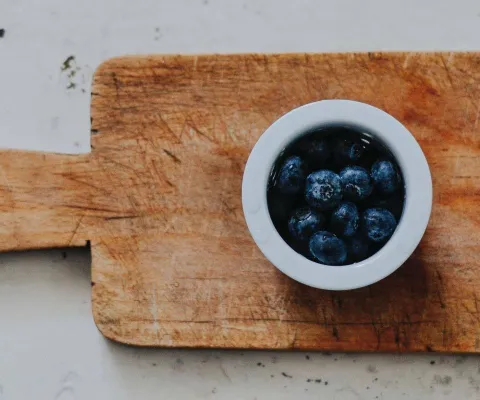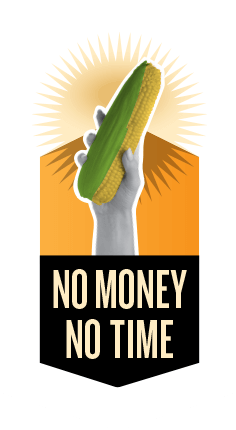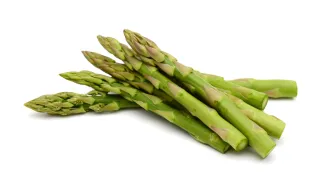
Asparagus
Asparagus is an easy to cook, nutritious and tasty addition to any plate. Its low in kilojoules and a great source of fibre, folate and vitamins A, C and K. Also, eating asparagus has a number of potential health benefits, including:
- Be Healthier:
High-fibre fruit and vegetables like asparagus can help reduce the risk of heart disease, type 2 diabetes and high blood pressure. Asparagus is rich in folate which is vital for a healthy pregnancy and reduces risk of neural tube defects during pregnancy.
- Healthy Gut:
Asparagus is a good source of fibre, in 10 spears there is around 6g of fibre (approx 20% of recommended daily fibre intake). Asparagus is particularly high in insoluble fibre, which adds bulk to stool and promotes a healthy gut.
To get more asparagus onto your plate, simply add it to salads, frittatas, omelettes and/or stir-fries.
FYI: Have you noticed that your pee smells a bit funny after eating Asparagus? Check out our article explaining why this happens.

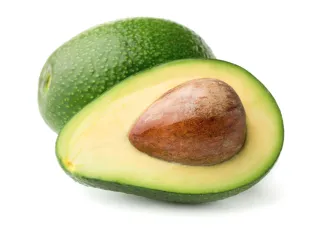
Avocado
If you’re an aspiring young homeowner, don’t worry, you can still enjoy some avo on toast! Avo’s are full of awesomeness, as you can see:
- Be Healthier:
Avocados are high in monounsaturated fats (The healthy type of fat), and essential phytonutrients (i.e. Vitamin K, Vitamin C & Potassium). Eating avocado has been associated with reduced metabolic syndrome risk and can improve heart disease risk factors like total, “bad” LDL and “good” HDL cholesterol, as well as blood triglycerides.
- Healthy Gut:
Avocados are a high fibre food, (1 x large avo is around 20% of the recommended daily fibre intake) which is beneficial for digestive health and promotes a healthy gut.
So next time you worry that your Avo on toast will set you back on buying a house, then worry no more because here at NMNT we have some awesome, cheap and healthy avo recipes.

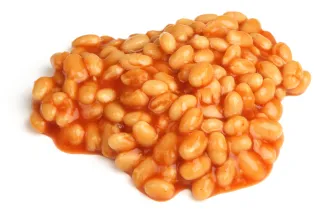
Baked Beans
Served as a toast-topping staple or piled high on a baked potato – baked beans are a delicious, quick and easy food that can be enjoyed with any meal of the day. Despite being called “baked” beans they are most commonly stewed in tomato sauce and they are usually made from navy beans (also known as haricot beans). There are many reasons why baked beans are healthy including:
- Be Healthier:
As an excellent source of fibre, beans can help reduce the risk of heart disease, type 2 diabetes and high blood pressure.
- More Energy:
A can of baked beans has a GI of 40; this is considered a low Glycaemic Index (Low GI) carbohydrate. This means when they are digested, the carbohydrates in them are absorbed slowly resulting in gradual release of glucose into the bloodstream. This helps to prolong energy throughout the day.
- Healthy Gut:
Baked beans are an excellent source of fibre, (one 130g can is around 25% of your daily recommended fibre intake) which promote a regular bowel habit and is beneficial for digestive health.
A drawback to baked beans are that they can contain quite a lot of salt so aim for the low-salt varieties.

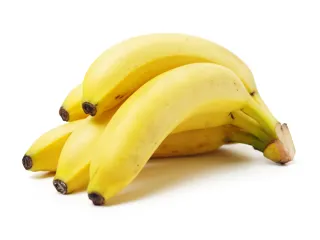
Banana
Bananas are one of the most popular fruits in the world and with all this goodness we can certainly see why:
- Be Healthier:
Bananas are a good source of potassium which can aid in reducing blood pressure and lower risk of heart disease and all-cause mortality.
- Healthy Gut:
Bananas are rich in fibre and resistant starch, which may feed the beneficial gut bacteria. They are also fairly rich in Pectin which may help protect against colon cancer.
Next time you need curb your hunger, grab a banana!

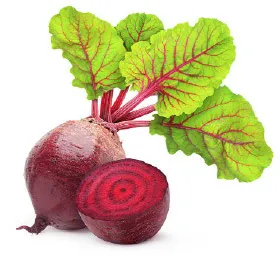
Beetroot
Turn up the beet! (pun intended), because beetroots are a magnificent little root vegetable with some impressive health benefits:
- Be Healthier:
During digestion, the nitrates get converted to nitric oxide which causes arteries to widen and lowers blood pressure. Beets also contain pigments called betalains, which have shown to have anti-inflammatory effects and may help in reducing risk of heart disease and cancer.
- Sharper Thinking:
The dietary nitrates also help increase blood flow to the brain to improve cognitive function.
Beetroots are incredibly versatile and can be eaten in a salad, dip, or juice to really supercharge your next meal.

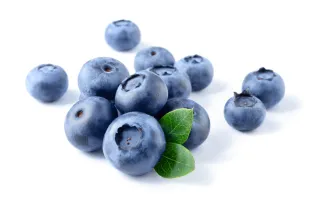
Blueberries
Blueberries pack a mighty health punch and helps with sports performance, energy levels and brain function. Wow!
- Be Healthier:
Blueberries are high in phytonutrients (especially Vitamin C and Manganese) which help in protecting against cancer and heart disease.
- Sharper Thinking:
Blueberries are high in flavonoids which have been shown to improve memory, enhance brain function and reduce rates of cognitive decline.
- Better Sports Performance:
Strenuous exercise is associated with oxidative stress / inflammation which results in muscle soreness, fatigue and impaired muscle soreness. The high phytonutrient content in blueberries helps reduce the oxidative stress to accelerate muscle recovery.
- More Energy:
Blueberries have a GI of around 53 which is low. This means that when they are digested, the carbohydrates in them are absorbed slowly resulting in a gradual release of glucose into the bloodstream. This helps to prolong energy throughout the day.
Blueberries are versatile and can be served for breakfast with rolled oats, as a snack, in a smoothie, as a dessert, added to a salad or mixed in with some Greek yogurt for a tangy and sweet sensation!

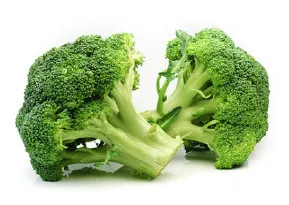
Broccoli
Broccoli may have been the bane of many childhoods, but these ‘little trees’ are a nutrition powerhouse full of beneficial health effects:
- Be Healthier:
Broccoli is a cruciferous vegetable and research has shown that consumption of cruciferous vegetables can reduce risk of many cancers including lung, colorectal, breast and prostate.
- Healthy Gut:
Broccoli are also rich in the plant compound Sulforaphane which may improve your bacterial gut microbiome.
Broccoli is one of the most popular veggies in the world. It is high in vitamin C, vitamin K and folate and is a good source of fibre. Add this mighty veg to your shopping basket today!

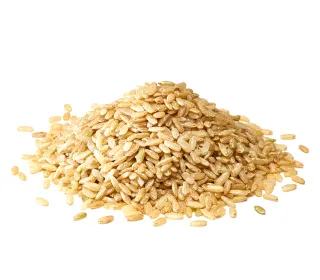
Brown Rice
Rice is enjoyed by people around the world! Did you know that there are over 40,000 varieties and it’s grown on every continent except Antarctica!
Brown rice is considered the most nutritional of the many forms. This is because it retains the bran as it is not milled like white rice that loses a lot of nutrients in the milling process.
Some of the amazing benefits of brown rice include:
- Be Healthier:
Brown rice is a whole grain which helps lower blood sugar levels and decrease risk of type 2 diabetes. One study found that simply replacing white rice with brown can also help to reduce blood glucose levels.
- Healthy Gut:
Brown rice is a good source of fibre which is essential for a healthy bowel function.
- Feel Fuller for Longer:
Compared to white rice, brown rice has a lower GI which helps to prolong digestion due to their slow break down and may help with satiety (feeling full).
Have a RICE day!

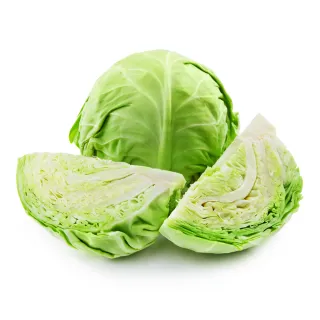
Cabbage
Did you know the heaviest cabbage ever grown was a whopping 63kg!!! As a sulphur rich food (which contributes to smelly farts), you wouldn’t want to be in close proximity to the person who ate that one!
While it may look like lettuce, cabbage is part of the brassica family of vegetables which includes broccoli, cauliflower and kale. Cabbage has some impressive health benefits including:
- Be Healthier:
Cruciferous vegetables like cabbage contains beneficial phytonutrients such as vitamin C, vitamin K, and manganese which help to reduce chronic inflammation
and reduce risk of heart disease. - Healthy Gut:
Cabbage is rich in the plant compound sulforaphane which may improve your bacterial gut flora.
- Support Immune Function:
Cabbage is a good source of vitamin C which is important for growth and development and maintenance of your immune system to help with wound healing and fighting infection.
Cabbage is often overlooked but can be found in a variety of dishes, including sauerkraut, kimchi and coleslaw. Just don’t eat too much cabbage when on a first date because the smelly farts could send them running for the hills.

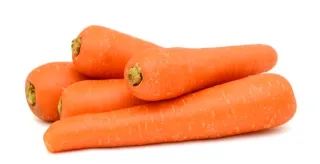
Carrot
Everyone’s favourite vegetable in a cake, carrots are tasty, nutritious and packed with goodness. Did you know you can also get purple, red, white and carrots! How cool! On top of this, carrots have heaps of health benefits, as you can see:
- Be Healthier:
Carrots are high in phytonutrients (especially Vitamin K, potassium beta-carotene, lutein and lycopene) which help in protecting against cancer and Heart disease.
- Healthier Skin:
Carrots are great sources of phytonutrients such as Beta Carotene which can improve healthier skin and overall appearance. Did you know: beta-carotene in vegetables can change the colour of your skin to give you more of a healthy glow!
If you CARROT* all about your health, then grab yourself a bunch of carrots.
*Sorry for the terrible pun.

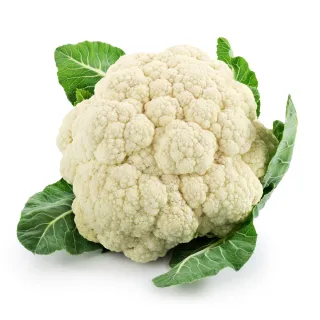
Cauliflower
Cauliflower is an incredibly versatile and nutritious veg that can be used to make rice, pizza crust, hummus, mac and cheese and even mash! Not only are caulis delicious they are packed with goodness too:
- Be Healthier:
Caulis are rich in Vitamin C which is well known for its anti-inflammatory properties and can help to reduce heart disease and cancer.
- Healthy Gut:
As a good source of fibre, cauliflower promotes a regular bowel habit and feeds the healthy bacteria in your gut to promote digestive health.
- Feel Fuller for Longer:
As a good source of fibre, cauliflower can help to slow digestion and promote feelings of fullness, which may help to reduce food consumed throughout the day.
So next time you are cooking, surprise your loved ones with a bunch of cauliFLOWERS!

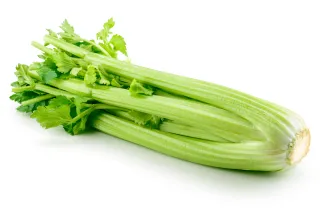
Celery
Let’s CELERY-brate this awesome vegetable! Did you know ancient Romans used celery as an aphrodisiac, so whether you are in the mood for love or just want a tasty low-energy snack make sure to add it to the top of your shopping list. Some of the health benefits include:
- Be Healthier:
Celery are high in phytonutrients (especially vitamin C and manganese) which help in protecting against cancer and heart disease.
- Support Immune Function:
Celery is a good source source of vitamin C which is important for growth and development and maintenance of your immune system to help with wound healing and fighting infection.
Celery can be enjoyed as a tasty snack with some hummus or in a soup, a salad or even added to some spag bol!

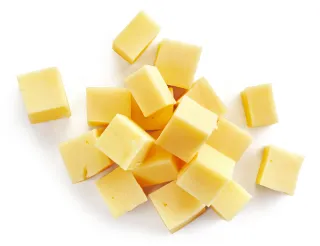
Cheese
You may not BRIE-lieve it, but eating moderate amounts of cheese regularly is consistent with good health! The Australian Guide To Healthy Eating recommends two to three serves of dairy foods per day with a serve equivalent to about 40 grams (about the size of a matchbox) of full fat or reduced fat cheese (*reduced fat is better to reduce your total kilojoule intake). Here are some reasons why cheese is awesome!
- Be Healthier:
A review of 4 studies found cheese intake to be associated with lower risk of heart disease.
- Better Sports Performance:
Cheese is high in protein which can provide amino acids for the maintenance and repair of muscle protein after strenuous exercise to help with a quicker recovery.
- Healthy Gut:
Cheese is a fermented food, containing bacteria or yeast, which contribute to healthy microbiomes and ultimately a healthy gut.
So we can all enjoy our Vegemite and cheddar sandwiches without feeling guilty!

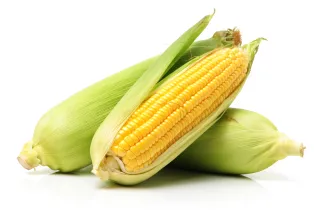
Corn
Sweet corn is also known as a maize and is typically yellow. But did you know that it can also come in a variety of colours such as red, orange, purple, blue, white and black? How cool!
This A-MAIZE-ING vegetable is stacked with healthy goodness with many benefits including:
- Be Healthier:
Sweet corn is a good source of potassium which can help to lower blood pressure and improved heart health. Sweet Corn is also a good source of carotenoids; Lutein and Zeaxanthin which have both been linked to improved eye health.
Next time you’re CORNfused about what to put in shopping trolley, don’t be! Grab some delicious sweet corn and add it to pasta, or enjoy on the BBQ.

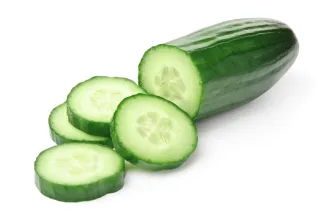
Cucumber
Cucumbers are often found in health spas as a beauty remedy to treat dark circles and puffy skin. BUT there’s more to cucumber that meets the eye. Check out these amazing benefits to regularly consuming cucumber:
- Be Healthier:
Cucumbers are a good source of potassium which can aid in reducing blood pressure and lower risk of heart disease and all-cause mortality.
- Healthy Gut:
Cucumbers are a good source of fibre, which promote a regular bowel habit and is beneficial for digestive health.
Though commonly referred to as a vegetable, cucumber is actually a fruit! Make sure to eat the cucumber with the peel/skin for maximum benefits.


Dragon fruit
Dragon fruit which is also known as the pitaya fruit contains several health benefits. Besides being low in kilojoules, it is also a rich source of antioxidants, Vitamin C, fibre and one of the few fresh fruits that contains iron!
- Be Healthier:
Dragon fruit is high in antioxidants (especially betacyanins and betaxanthins) which helps to reduce inflammation and reduce the risk of chronic diseases such as: heart disease, cancer, diabetes and inflammatory bowel diseases. Being a good source of iron, dragon fruit is important for populations with nutritional iron deficiency and may help to prevent poor pregnancy outcomes
- More Energy:
Dragon fruit is a good source of iron which is especially important for populations with nutritional iron deficiency and may help to improve work performance and reduce fatigue.
- Healthy Gut:
With 3g of fibre in one average sized dragon fruit (approx 12% of recommended daily fibre intake), dragon fruit is an excellent choice to be incorporated in your diet to meet your recommended daily requirement. It is also a good source of prebiotics that helps in promoting the growth of healthy bacteria in your gut.
- Support Immune Function:
Dragon fruit is high in vitamin C to help with wound healing and fighting infection. Vitamin C also helps the body to enhance the absorption of iron.
Enjoy it by simply incorporating Dragon fruit into your favourite smoothies and salads now!
FYI: Do you know that dragon fruit belongs to the cacti family?

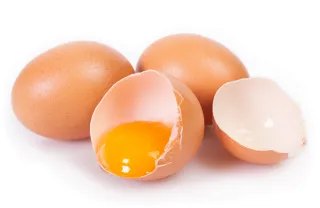
Eggs
Eggs are one of the healthiest foods on the planet. On top of this they are cheap, taste EGGcellent and are easy to cook! Some of the health benefits include:
- Be Healthier:
Eggs contain good quality protein and are a source of healthy fats including omega-3 fats which help in preventing heart disease.
- Better Sports Performance:
Eggs are complete source of protein i.e., they have all the essential amino acids (the part of proteins we need from our diets) to help with maintenance and repair of muscles after strenuous exercise to help with a quicker recovery.
- Feel Fuller for Longer:
Eggs are filling which means you eat fewer calories overall throughout the day. Also, research has shown that eating eggs for breakfast can help in weight loss.
Tip: Store your eggs in the carton in the fridge to keep in the eggy goodness!
Three EGGY facts:
- To produce one egg, it takes a hen 24-26 hours!
- The exact nutrient composition of eggs depends on the diet of the hen. So there may be more than just ethical reasons to buy the fancier free-range and organic variety.
- Eggs contain cholesterol which has led to the myth that eggs are bad for you. But the cholesterol in eggs has almost no effect on your blood cholesterol levels. Your cholesterol levels are more influenced by the saturated and trans fat you eat and an egg only has about 1.5 grams of saturated fat, and zero trans fats. Eggs also contain “good” fats such as omega-3s.

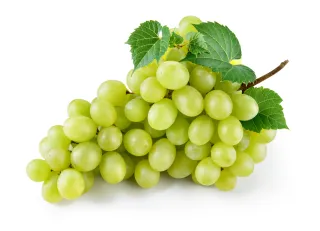
Grapes
Grapes are one of the world’s favourite fruits (and not just because they are the core ingredient in wine). They are delicious, sweet and juicy, offering a wealth of health benefits including:
- Be Healthier:
Grapes are a good source of resveratrol which has shown to protect against heart disease and against the development of cancer.
- Sharper Thinking:
Studies have shown that the polyphenols in grapes can improve attention and memory.
- Support Immune Function:
Grapes are a good source of vitamin C which is important for growth and development and maintenance of your immune system to help with wound healing and fighting infection.
There are around 60 species of grapes which divide into over 8,000 varieties, but the most common are the red and white grapes. For a health boost add some grapes to your diet – your body will be ‘grapeful’ for it!

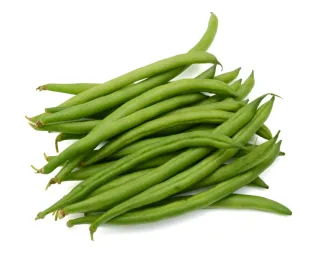
Green Beans
Green beans are the perfect side-dish for many main meals, they are a rich in vitamins A, C and K, folic acid and fibre. So add some green beans to your plate to get these awesome benefits:
- Be Healthier:
Being rich in Folate, green beans are vital for a healthy pregnancy and reduces risk of Neural Tube Defects during pregnancy.
- Support Immune Function:
Being rich in Vitamin C, green beans can help your body fight off infections.
Why not give them a try, you can have them raw with hummus, mixed in with a Thai curry or added to a green salad.

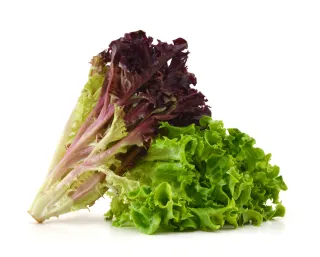
Lettuce
Shh LETTUCE tell you a secret… lettuce is a Real ‘Superfood’ that has loads of health benefits including:
- Be Healthier:
Lettuce is high in essential phytonutrients (especially Vitamin K, Vitamin C and potassium) which help in protecting against cancer and Heart disease. Lettuce is also part of the ‘green leafy veg’ family and research has shown green leafy vegetables had the greatest protective effect from type two diabetes when compared to other types of fruit and vegetables. There is also strong evidence showing that green leafy veg can reduce risk of heart disease by up to 16%.
- Healthier Skin:
Lettuce is also good a source of phytonutrients such as, Vitamin C and Beta Carotene which can improve Healthier Skin and overall appearance.
Use in salads or add to other recipes for a refreshing crunch to your meal!

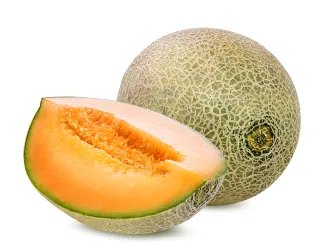
Melon
Did you know that the Yubari melon, a juicy and extremely sweet orange melon, is the world’s most expensive fruit, coming in at $23,000 per pair? Don’t worry not all melons cost you an arm and a leg, you can get sweet and juicy watermelon, cantaloupe and honeydew all at low cost and still get amazing health benefits:
- Be Healthier:
High-fibre fruit like melon can help reduce the risk of Heart disease, Type 2 diabetes and high blood pressure.
- Healthier Skin:
Melons have a high Beta Carotene (cantaloupe) and Lycopene (red watermelon) content which can improve Healthier Skin and overall appearance.
- Support Immune Function:
Melons are a good source of vitamin C and Vitamin A which is important for growth and development and maintenance of your immune system to help with wound healing and fighting infection.
This aromatic, juicy and refreshing fruit can be eaten fresh as part of breakfast, added to salads and seafood dishes or served as a dessert with yoghurt. Yum!

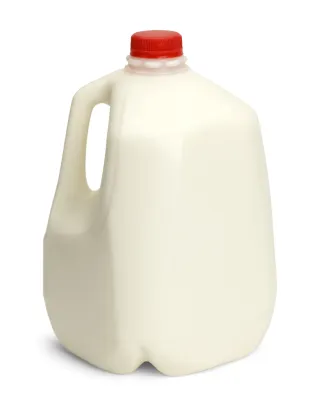
Milk
Milk is… wait for it… LegenDAIRY! It is one of the oldest consumed beverages and is valued as the “food of the gods” by ancient Greeks. Here are some reasons why milk has been enjoyed throughout the world for thousands of years:
- Be Healthier:
Milk is nutrient-rich and is packed with important nutrients like calcium, phosphorus, B vitamins, potassium and vitamin D. Drinking milk is important for bone health and may prevent osteoporosis and bone fractures.
- Better Sports Performance:
Research suggests that fat free milk is as effective as, and possibly even more effective than, sports drinks at promoting recovery from strength and endurance exercise. Also milk also has the added benefit of providing additional nutrients and vitamins that are not present in commercial sports drinks.
Although milk may be a good choice for some, others can’t digest it or choose not to consume it. If this is the case for you, do not worry as many of the essential nutrients found in milk can also be found in a variety of plant foods.

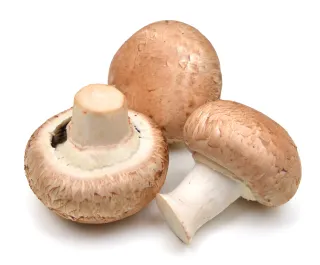
Mushrooms
Mushrooms are more than a Pizza Topping. Did you know they were once used for medicinal purposes in Asia? Whether you eat them for taste, nutrition or convenience it doesn’t matter because mushrooms help you to:
- Be Healthier:
Mushrooms are high in phytonutrients (especially Vitamin A, Vitamin D, Glutathione, ergothioneine and Selenium) which help in reducing inflammation and preventing heart disease and certain cancers.
- Healthy Gut:
As a good source of fibre, mushrooms help to keep you regular.
- Healthier Skin:
Mushrooms are a good source of niacin, which is associated with lower skin cancer risk.
So make some room for mushrooms on your plate!
FYI: Mushrooms are great for vegans and vegetarians because of the rich Vitamin B12 content. Vitamin B12 helps with red blood cell formation and the breaking down of some fatty acids and amino acids to produce energy. Mushrooms are one of the few plant-based sources which contain this essential vitamin.

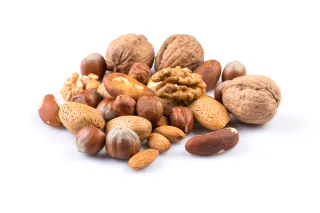
Nuts
Go NUTS for nuts! Did you know Walnuts are the oldest known tree food — they date all the way back to 10,000 BC. So not only have Nuts passed the test of time, they also have heaps of benefits including:
- Be Healthier:
Nuts are a great source of healthy fats (monounsaturated and polyunsaturated fats) which are essential for regulating blood cholesterol and improving heart health. In a review of 25 intervention trials, eating approximately 67g of nuts a day (about half a cup) led to a 5.1% reduction in total cholesterol and 7.4% for LDL (bad cholesterol). Eating nuts regularly has also shown to reduce risk of heart disease, reduce overall mortality and reduce risk of developing type 2 diabetes.
- Better Sports Performance:
Nuts are high in protein which can provide amino acids for the maintenance and repair of muscle protein after strenuous exercise to help with a quicker recovery.
- Healthy Gut:
As a good source of fibre nuts are essential for a healthy bowel function.
- Feel Fuller for Longer:
Although nuts are high in kilojoules, research in over 120,000 healthy men and women, found that eating nuts meant they were less likely to gain weight over the four years studied. The combination of protein, fibre and healthy fats help satisfy the appetite and help in weight management.
Almonds, Brazil nuts, cashews, chestnuts, hazelnuts, macadamias, pecans, pine nuts, pistachios and walnuts are all nuts that are packed full of beneficial nutrients for good health. So next time you’re peckish, maybe grab a bag of nuts.

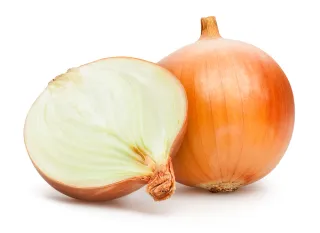
Onions
Don’t cry, onions are awesome! Commonly used for flavouring or as a side dish, this mighty veg sure packs a health punch:
- Be Healthier:
Being rich in Folate, onions are vital for a healthy pregnancy and reduces risk of Neural Tube Defects during pregnancy.
Onions are high in phytonutrients (especially Vitamin C and potassium) which help in protecting against cancer and Heart disease.
- Healthy Gut:
Onions are a decent source of fibre. The main fibre in them, fructan are prebiotic fibres which are considered the ‘beneficial gut bacteria’ which can improve colon health and reduce risk of colon cancer.
To get more onions in your diet, simply add to a curry, frittata, pasta, or salad.

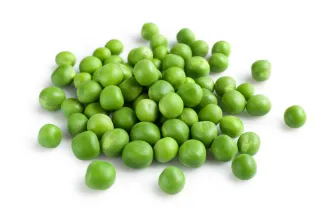
Peas
Don’t worry PEA Happy, because green peas are a healthy addition to any meal. In the Middle Ages, green peas were considered a luxury item and rich people served them to impress their hosts! This luxurious veg has some impressive health benefits too:
- Be Healthier:
Peas are high in fibre and can help reduce the risk of Heart disease, Type 2 diabetes and high blood pressure.
- Healthy Gut:
As a good source of fibre, green peas promotes a regular bowel habit and keep gut bacteria healthy.
Whether it’s frozen, fresh or canned green peas, why not try some today.

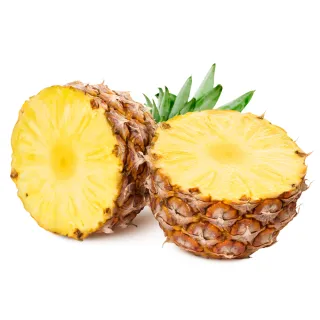
Pineapple
Pineapples are not only a pizza topping, they are a delicious and refreshing tropical fruit which have been linked to many health benefits including:
- Be Healthier:
Pineapples are high in phytonutrients (especially Vitamin C and Manganese) which help in protecting against cancer and Heart disease.
- Better Sports Performance:
Strenuous exercise can cause inflammation and result in muscle soreness for up to 3 days. But research has shown that the nutrient Bromelain in pineapples may reduce this inflammation and speed up recovery from the damage caused by exercise.
- Support Immune Function:
Pineapples are loaded with vitamin C to help with wound healing and fighting infection.
To get some more pineapple in your diet, why not add it to a smoothie for breakfast, or in a salad with roast chicken, or in a dessert as a delicious fruit salad?

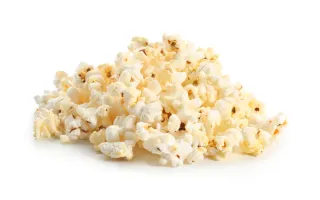
Popcorn (unsalted)
Popcorn is one of the world’s most popular snack foods. It is a special type of corn that ‘pops’ when exposed to heat. Did you know that it can pop to up to 3 feet in the air!
Popcorn is a healthy low-kilojoule snack with a variety of benefits including:
- Be Healthier:
Many people don’t realise this but popcorn is a whole grain food. Research has shown that whole grain intake is beneficial in preventing of type 2 diabetes, heart disease and certain cancers.
- Feel Fuller for Longer:
As a good source of fibre, popcorn can help to slow digestion and promote feelings of fullness, which may help to reduce food consumed throughout the day. Also one study compared feelings of fullness after eating popcorn and potato chips. They found that 63 Kilojoules of popcorn were as filling as 630 Kilojoules of potato chips.
As a fantastic source of fibre and whole grain, popcorn is a healthy low kilojoule snack that can be enjoyed by all.

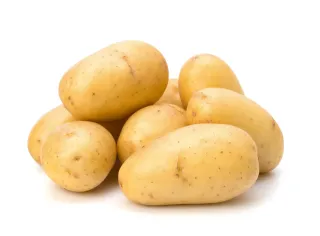
Potatoes
Did you know that potatoes were the first food to be grown in space? In 1996, potato plants were taken into space with the space shuttle ‘Columbia’. This ‘out of space’ vegetable also has a number of health benefits including:
- Be Healthier:
Potatoes are high in potassium with is linked with reduced risk of hypertension and heart disease.
- Support Immune Function:
Potatoes are a good source of vitamin C to help with wound healing and fighting infection.
- Feel Fuller for Longer:
Satiety is the feeling of fullness and loss of appetite that occurs after eating. Potatoes are considered one of the most satiating (filling) foods so may be useful as part of a weight loss diet.
Best eaten boiled or baked. Potatoes are a great side-dish or snack to add to your plate.

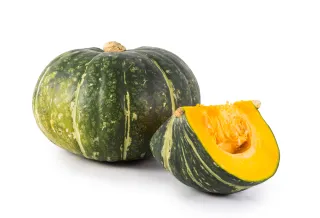
Pumpkin
Everyone’s favourite Halloween dish, pumpkin can be enjoyed all year round and is incredibly nutritious, with these awesome benefits:
- Be Healthier:
As a good source of beta carotene, pumpkins may to help lower risk of metabolic syndrome. Metabolic syndrome is the cluster of symptoms associated with obesity i.e., high blood pressure, poor blood sugar control and elevated triglyceride levels.
- Healthier Skin:
Pumpkins are great sources of phytonutrients such as Vitamin C and Beta Carotene which can protect skin from the Sun’s damaging UV rays and improve overall appearance.
- Support Immune Function:
Being rich in Vitamin C, pumpkin can help your body fight off infections.
So don’t be scared to add some more pumpkin to your plate!

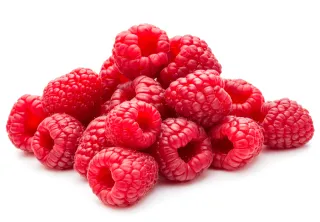
Raspberries
Raspberries are a delicious, red berry. You might find them in summer drink menus or spicing up a fruit salad. But did you know they have health promoting qualities too:
- Be Healthier:
Raspberries are high in phytonutrients (especially Vitamin C and Manganese) which help in protecting against cancer and Heart disease.
- Healthy Gut:
As a good source of fibre, raspberries promote a regular bowel habit.
- Healthier Skin:
Research suggests the phytonutrients in berries help to neutralise free radicals, which is one of the leading causes of skin aging.
There are many ways to enjoy this juicy fruit. Frozen raspberries can be cheaper and available all year round! Try adding to cereal or oats for a tangy breakfast. Add to a smoothie for a quick snack or make a berry salad with blueberries, strawberries and blackberries.
Did you know: Raspberries come in all sorts of colours, including red, purple, gold or black. The gold ones are the sweetest variety.

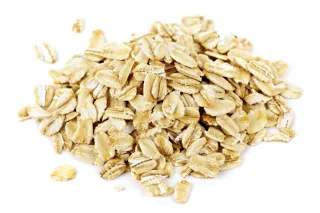
Rolled Oats
Did you know that oats have their very own special day? October 29th is National Oatmeal Day in the US. So in celebration of this magnificent grain, we’ here to tell you all about its many benefits:
- Be Healthier:
Regularly eating oats is important for heart health as research has shown oats reduce your blood pressure, your total cholesterol and LDL (bad) cholesterol.
- Sharper Thinking:
Oats supply a sustained energy source to the brain, which may help people to learn better. A study of school children showed that those who ate oatmeal before school performed significantly better on spatial memory and auditory learning tasks than those who ate a sugar cereal.
- Better Sports Performance:
Oats have a Glycaemic Index of around 50 which is considered as a low GI carbohydrate. This means that when they are digested the carbohydrates in them are absorbed slowly, resulting in a gradual release of glucose into the blood which helps to improve overall endurance and running capacity.
- More Energy:
Oats are a carbohydrate which breaks down slowly to gradually release glucose into the bloodstream, this give you a longer-lasting energy boost throughout the day. Oats are absorbed slower, giving you a longer-lasting boost throughout the day. Oats also contain B vitamins like Niacin and Thiamin, which work together to help your body convert carbohydrates into energy.
- Feel Fuller for Longer:
As a Low GI carbohydrate, oats help to prolong digestion due to their slow break down and may help with satiety (feeling full).
Celebrate National Oatmeal day everyday by enjoying oats for breakfast (as porridge or in muesli). And there’s an added bonus – they’re cheap, at $4 to $5 a kilogram!

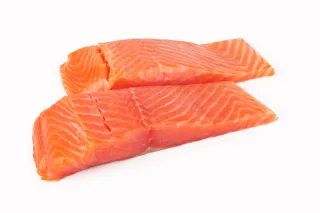
Salmon
Salmon is high in fat and has almost double the fat content of a lean steak. But don’t avoid this fatty fish because salmon contains highly specific healthy fats called omega-3s, which are components of every cell membrane in your body. Salmon is also an excellent source of B vitamins, with a number of health benefits including:
- Be Healthier:
Salmon is high in healthy polyunsaturated fatty acids called omega-3s (1.7 grams per 100 grams fish) and omega-6 (170 milligrams per 100 grams of fish). Research shows these are important to regulate important body functions, including blood pressure, blood clotting, the brain and nervous system, and the production of molecules that regulate the inflammatory response.
- Sharper Thinking:
Salmon is an excellent source of several B vitamins, which are essential for optimal brain health and functioning.
- Better Sports Performance:
Your body requires protein to heal and recover after exercise. Salmon is a good source of protein (salmon provides 24 grams of protein per 100 grams serve) which can provide amino acids for the maintenance and repair of muscle protein after strenuous exercise to help with a quicker recovery.
So make sure to get this fatty fish on the menu every week!

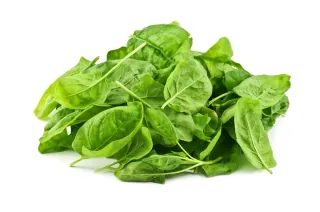
Spinach
Green leafy veg like spinach are absolutely cram packed with vitamins and minerals, especially iron, folic acid, carotenoids, Vitamin C and Vitamin K. Spinach has a number of health benefits including:
- Be Healthier:
Fruit and vegetables can help ward off type two diabetes, but a closer look at specific types found that green leafy vegetables including spinach had the greatest protective effect. There is also strong evidence showing that green leafy veg can reduce risk of heart disease by up to 16%. As a good source of iron, spinach is important during pregnancy to prevent poor pregnancy outcomes such as preterm labour, low birth weight and infant mortality.
FYI: Dietary iron absorption is low in vegans and vegetarians. This is because in plant-based diets most dietary iron is non-haem iron, and its absorption is often less than 10%. This is much lower than meat which is haem iron, where absorption is 15-35%. If you are vegan or vegetarian click here for more ways on how to increase Iron absorption in Vegans and Vegetarians.
- Healthier Skin:
Green leafy Veg such as spinach are great sources of phytonutrients such as lutein, vitamin C and beta carotene which can improve skin health health and appearance.
- More Energy:
Spinach is a good source of iron. This is important to prevent fatigue and reduced work performance.
- Support Immune Function:
Consumption of iron-containing foods such as spinach can help to prevent anaemia and reduce susceptibility to infections.
With so many health benefits it’s no wonder why Popeye loved spinach so much!

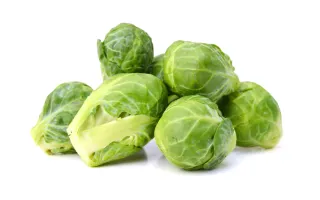
Sprouts
Brussel Sprouts can be enjoyed all year round (not just at Christmas). These cruciferous vegetables boast many nutrients and have been linked to several health benefits including:
- Be Healthier:
Sprouts are high in fibre which can help reduce the risk of Heart disease, type 2 diabetes and high blood pressure.
Sprouts are also rich in folate which is vital for a healthy pregnancy and reduces risk of neural tube defects during pregnancy.
- Support Immune Function:
Sprouts are an excellent source of vitamin C. In fact, half a cup of sprouts provides around 80% of your daily vitamin C needs. This high source of vitamin C is important for growth and development and maintenance of your immune system to help with wound healing and fighting infection.
Be careful not to overcook sprouts as this makes them smell like rotten eggs due to the high levels of sulforaphane they contain. On the other hand, roasted, sautéed or grilled sprouts can taste sweet and nutty – and delicious.

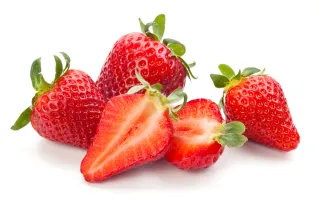
Strawberries
Strawberries are a ‘must-have’ food to put in your shopping trolley. They taste great, are highly nutritious and provide many health benefits, including:
- Be Healthier:
Strawberries are high in phytonutrients (especially Vitamin C and Manganese) which help in protecting against cancer and Heart disease.
- Sharper Thinking:
Strawberries are high in flavonoids which have been shown to improve memory, enhance brain function and reduce rates of cognitive decline.
- Healthy Gut:
Strawberries are a good source of fibre which are important to feed the friendly bacteria in the gut and improve digestive health.
Did you know: A staggering 28,000kg of strawberries are consumed by fans over the course of The Wimbledon Tennis Grand Slam.
So next time you’re watching sport, rather than grab a pack of chips, maybe grab a punnet of strawberries instead!

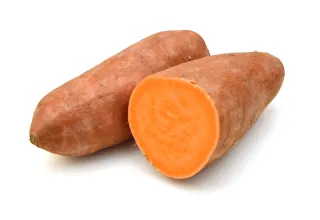
Sweet Potato
Sweet potatoes are full of nutrients. They can be baked, barbecued, fried, mashed, roasted or steamed to create a tasty piece of tucker! They are rich in beta carotene, vitamin C and fibre with many health benefits, including:
- Be Healthier:
Sweet potatoes are rich in carotenoids, which help to protect against heart disease and cancer.
- Healthy Gut:
One large sweet potato contains around 7g of fibre which is 23% of the recommended daily fibre intake. As a good source of fibre, sweet potato promotes a healthy microbiome.
Make sure to keep the skin on to retain the benefits of fibre!
- Healthier Skin:
Sweet potatoes are rich in beta carotene which can improve skin health and appearance.
- Support Immune Function:
Sweet potatoes are a good source of vitamin C to help with wound healing and fighting infection.
Enjoy sweet potatoes in roasts, bakes, warm salads or pastas to boost the goodness in your next meal!

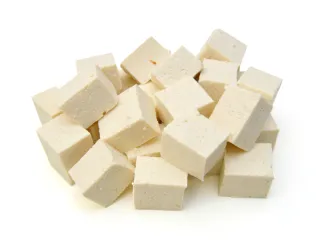
Tofu
Tofu is a soy based product that originated in china almost 2000 years ago. The process of making tofu is very similar to making cheese and it is essential element in most vegan diets, with a number of health benefits including:
- Be Healthier:
Soyfoods such as Tofu are a great source of protein and essential fatty acids. Research has linked these soyfoods with improvement in cholesterol levels and blood pressure.
- Sharper Thinking:
Tofu is a great source of isoflavones which can favourably improve cognitive function and visual memory.
Tofu is low in calories per serving, and great sources of high-quality protein and healthful fat. So next time you’re making a curry, stir fry, or soup throw some Tofu in there!

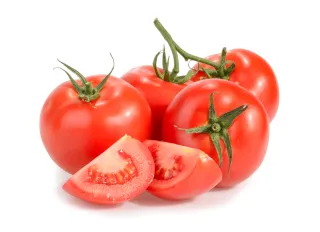
Tomatoes
I’m feeling good from my head TO-MA-TOES. Why? Because tomatoes are jam-packed full of goodness, as you can see:
- Be Healthier:
Tomatoes are a rich source of the carotenoid Lycopene. Research has shown that diets rich in lycopene is associated with reduced risk of certain cancers, particularly prostate cancer, pancreatic cancer and cancers of the digestive tract.
- Healthier Skin:
Tomatoes are considered beneficial to Healthier Skin and the high lycopene and beta-carotene content may protect against sunburn.
Tomatoes are high in healthy phytonutrients and can be a valuable part of a healthy diet so enjoy some with pasta, in a salad or in a veggie frittata.

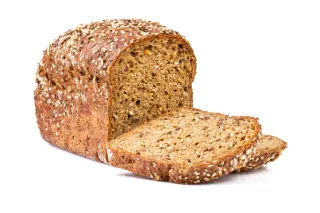
Whole Grain Bread
Whole grain bread is the best thing since, well erm, sliced bread! Some of the wonders of whole grain bread include:
- Be Healthier:
Whole grain diets have been linked to reduced risk of obesity, heart disease, some cancers and type two diabetes.
- More Energy:
Whole grain bread is a good source of B vitamins, iron and healthy carbohydrates. A serve of wholegrain bread has a GI of around 47, which is considered a low GI carbohydrate (compared to white bread which has a GI of around 70). This means these carbohydrates breaks down slowly to gradually release glucose into the bloodstream, this helps to prolong energy throughout the day.
- Healthy Gut:
Whole grain bread is high in dietary fibre which helps to feed “good” gut bacteria which has a number of health benefits. Research found that a diet high in whole grain was associated with lower risk of bowel cancer. Being high in fibre, whole grain bread is beneficial for bowel health and helps in preventing constipation.
- Feel Fuller for Longer:
Compared to white bread, whole grain has a lower GI which helps to regulate blood glucose levels, keeping us fuller for longer, and helping us eat fewer kilojoules throughout the day!
There are a number of different types of amazing whole grain breads, make sure to choose those with visible grains or seeds!

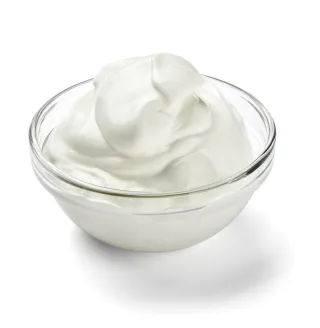
Yoghurt
Yoghurt is Turkish for “curdled” or “thickened milk”. It is one of the oldest fermented dairy foods and is a rich source of calcium and protein. It also contains other nutrients such as iodine, vitamins D, B2 and B12, and zinc. Here are some of the impressive health benefits of yoghurt:
- Be Healthier:
Yoghurt is important for overall health. Research has linked yoghurt consumption with gastrointestinal tract health, bone health and prevention of metabolic syndrome, diabetes and heart disease.
- Better Sports Performance:
Yoghurt is a good source of protein which can provide amino acids for the maintenance and repair of muscle protein after strenuous exercise to help with a quicker recovery.
- Healthy Gut:
Consuming yoghurt can help maintaining a healthy microbiota (the colony of bacteria in your gut). Also some types of probiotics in yoghurt have been shown to improve digestive health.
There are many different types of yoghurt – plain, Greek, low-fat etc but which is healthiest? Check out this 2-min read to find out.

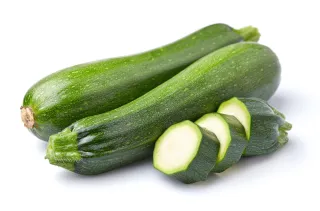
Zucchini
Zucchinis (or courgette) may look like a cucumber but they are a type of squash. The word “zucchini” comes from the Italian zucchino, meaning a small squash. Although it is technically a fruit (because it develops from a flowering plant), zucchini is widely referred to as a vegetable because it is cooked and eaten like a vegetable. It has many health benefits including:
- Be Healthier:
Zucchinis are a good source of potassium which can aid in reducing blood pressure and lower risk of heart disease and all-cause mortality.
- Support Immune Function:
Zucchini is a good source of vitamin C which is important for growth and maintenance of your immune system to help with wound healing and fighting infection.
Unlike cucumber, zucchini is usually served cooked and can be boiled, grilled, steamed, stuffed and baked, barbecued or fried. You can leave the skin on to create Zucchini noodles by using a veg spiraliser. This versatile vegetable is a ‘must have’ food on your shopping list!
Did you know: The flower of the zucchini plant is also edible (and it is yum!)

